|
‘Don’t run. Walk,’ I tell myself. My breathing is shallow. I think about Andrei and my heart starts to pound just as hard as if I were skipping rope. What would Andrei say if he knew that I’m on my way to study with a rabbi? I try to push these thoughts away and concentrate on the streets. This is the same route I take every single day to and from school. But this time it’s different because I am doing it as a Jew, and being Jewish is dangerous. My feet speed up. My right hand is holding the two handles of my turquoise toiletry bag so tightly, my wrist hurts. My palms are clammy. Everything around me is blurry, except for my racing thoughts. If Grandpa Yosef had enough courage to cheer the Allied planes on to drop their bombs on Bucharest, I can walk to the rabbi’s house. If Mama could come home after an earthquake to find her house had been destroyed, I can walk to the rabbi’s house. If Tata could survive the lagers and the Russian Gulag, I can walk to the rabbi’s house, even if Tata doesn’t believe in God. |
|
|
|
Grandpa Iosef also calls me Eva, but once in a while when the two of us are alone, he refers to me as his Leah, the name he gave me in memory of my great-grandmother, his mother-in-law. Grandma Iulia calls me Evushka, a Romanian endearment. Aunt Puica, mother’s younger sister, calls me Evisoara, also a Romanian endearment, but only when she is in a good mood, which is seldom. Uncle Natan, Mama’s older brother, refers to me as “The Little Girl.” Uncle Max, Aunt Puica’s husband, the only one to whom I’m not blood-related, calls me “The Child.” My father is hardly ever home, so he seldom has a need to address me. |
|
|
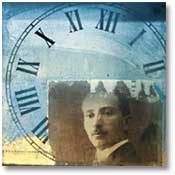 I promised my mother not to bring up Tata’s parents to him again, but I can look at our clock ticking away on top of the bureau to my heart’s content. Grandpa Emile’s thin pencil markings keeping track of the dates on which he had wound the clock, can still be found etched on the clock’s back panel. How could things survive yet people who are irreplaceable, perish? I promised my mother not to bring up Tata’s parents to him again, but I can look at our clock ticking away on top of the bureau to my heart’s content. Grandpa Emile’s thin pencil markings keeping track of the dates on which he had wound the clock, can still be found etched on the clock’s back panel. How could things survive yet people who are irreplaceable, perish? |
|
|
“Right,” she nods, “and if you ever come to school with stains from last night’s dinner on your new Pioneer scarf, you will have to deal with me — and so will your parents,” she adds. “Understood?” “UNDERSTOOD!” We shout back. |
|
|
|
|
 |
||||||||||||||||
|
|
 |
||||||||||||||
 |
||||||||||||||||
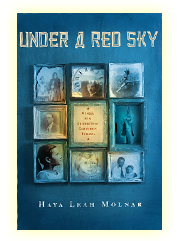
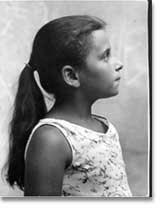 MY MOTHER CALLS ME EVA, after the first woman in the Bible and also to carry on the initial E for Grandpa Emile, Tata’s father, who died in Auschwitz.
MY MOTHER CALLS ME EVA, after the first woman in the Bible and also to carry on the initial E for Grandpa Emile, Tata’s father, who died in Auschwitz.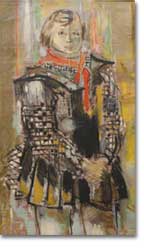 “YOU WILL WEAR YOUR PIONEER’S SCARF WITH GREAT PRIDE,” Comrade Popescu tells us as she demonstrates how to make a square knot out of the triangular silk fabric. “Class, what does the color red of your scarf symbolize?” she asks. We answer in unison, “The red flag of the USSR!”
“YOU WILL WEAR YOUR PIONEER’S SCARF WITH GREAT PRIDE,” Comrade Popescu tells us as she demonstrates how to make a square knot out of the triangular silk fabric. “Class, what does the color red of your scarf symbolize?” she asks. We answer in unison, “The red flag of the USSR!”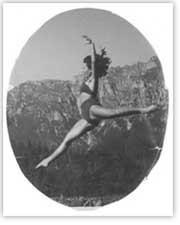 My first memory of walking properly as Mama calls it, is when she places a book on the crown of my head and tells me to walk across the room with my head held high and my spine straight, without dropping the book. I walk in slow motion, minding each and every step until I reach the other end of the room. The book wobbles when I gaze at her sideways for her approval. “Good,” she says, “but don’t look at me. That’s how you’ll lose your balance. You must look straight in front of you and never take your eyes off where you are going.”
My first memory of walking properly as Mama calls it, is when she places a book on the crown of my head and tells me to walk across the room with my head held high and my spine straight, without dropping the book. I walk in slow motion, minding each and every step until I reach the other end of the room. The book wobbles when I gaze at her sideways for her approval. “Good,” she says, “but don’t look at me. That’s how you’ll lose your balance. You must look straight in front of you and never take your eyes off where you are going.”